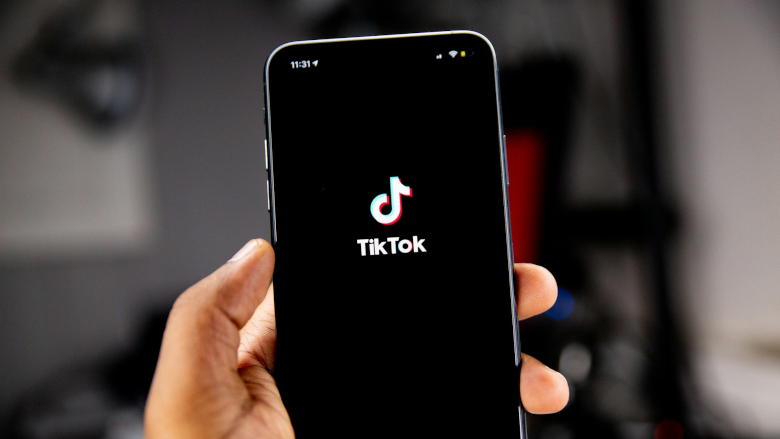- Essential commands for Linux server management
- AI-Ready Infrastructure: A New Era of Data Center Design
- UK ICO Fines 23andMe £2.3m for Data Protection Failings
- Amazon Prime Day returns July 8-11: Here's what's new (and what to know)
- I tested Hisense's flagship QLED TV and didn't miss my OLED set (especially when it's $700 off)
Why banning TikTok will not solve data security challenges

TikTok, the social media platform owned by the Beijing-based company ByteDance, has come under fire from Washington, D.C. lawmakers. Legislation signed into effect on April 24 includes a provision that requires ByteDance to sell the social media app in the next nine to twelve months or be banned in the United States. According to the Associated Press, the ban would not go into effect for at least a year and will likely take longer due to legal challenges.
Those arguing for TikTok to be banned cite multiple reasons with national security at the top of the list. Another reason they want TikTok banned: data security.
The fact that the platform is owned by a Chinese company and that it could be exploited by the Chinese government is a valid national security concern. But the idea that TikTok is a data security threat simply doesn’t hold water when there are so many other apps with just as much — if not more — access to user data.
How much data does TikTok have?
TikTok currently has approximately 170 million U.S. users. When someone opens an account, TikTok collects personally identifiable information such as the user’s name, age, language, email, phone number, social media account information and profile image — very similar to other popular social media apps like Facebook and Instagram.
Also, like other social media apps, TikTok is saving user activity data and collects information on purchases that happen on the app, contact lists and messages sent via the platform. On its privacy policy page, TikTok confirms it automatically collects usage and device information, location data, image and audio information, metadata and cookies.
TikTok: A drop in the bucket when it comes to data collection
Yes, TikTok may be capturing a lot of data, but if you’re comparing TikTok’s data policies to Meta’s policies for Facebook and Instagram, it all sounds strikingly similar. What’s not similar are the user numbers. According to Meta’s Q4 2023 earnings report, Facebook had 205 million daily active users in the U.S. and Canada at the end of last year. Add to that the more than 150 million U.S. users on Instagram — not to mention Threads and WhatsApp — and one immediately realizes just how much more data Meta has.
And that’s just one company. Google, Apple, Amazon and the thousands of consumer apps that Americans use for entertainment, shopping and wellness — not to mention the collaborative work apps so many of us have on our phones — all of these platforms are collecting user data. TikTok accounts for barely even a drop in this ocean of data collection. In fact, when grading the largest tech companies on their data policies, Security.org gave Google an F: “Out of all the companies on this list, Google collects and stores most of your information by far.” (Worth noting that Facebook earned a C and Apple received an A+).
As Representative Sara Jacobs from California made clear after briefings on the bill, “Not a single thing that we heard in today’s classified briefing was unique to TikTok.”
What the data security and tech experts have to say
The primary issue when it comes to the amount of data that TikTok has compared to these other leading tech platforms and social media giants is that TikTok is owned by China. But the reality is that China can just as easily access Americans’ data without the app.
In a recent report from Scientific American, Kate Ruane, an attorney for the Center for Democracy and Technology, emphasized just how ineffective a TikTok ban would be in terms of data security: “Banning access to one application does not create safety or security for Americans’ data from China or from any other country,” said Ruane. “So many applications and social media services collect our data and sell it or leak it all over the world, all the time.”
In the same article, Callie Schroeder, senior counsel for the nonprofit organization Epic.org (Electronic Privacy Information Center), called the ban a form of security theater and said that legislators are smart enough to know banning TikTok doesn’t address the real problem. “You could get rid of TikTok today, and China would not lose any significant [amount] of personal information on Americans,” said Schroeder.
If banning TikTok isn’t the answer, what is?
There may be valid arguments for U.S. lawmakers to ban or force the sale of the social media app — national interests and regulatory issues being among them — but banning TikTok for data privacy protections against China won’t work.
So, what’s the answer? There is an argument to be made for stricter consumer privacy laws that apply to all social media sites and tech platforms. Transparency is a must for any platforms that collect user data — informing the user on exactly what data is being collected and how it is used. For businesses, it’s crucial IT or security teams have complete visibility into what data is being uploaded, saved and shared across the company’s cloud-based app environment.
Ultimately, the digital ecosystem is so massive and contains so much personally identifiable information that banning a single social media app over data security concerns would have zero impact. It may even cause further harm, opening the door to more bans without any efforts going toward policies and tactics that could actually create positive change.

